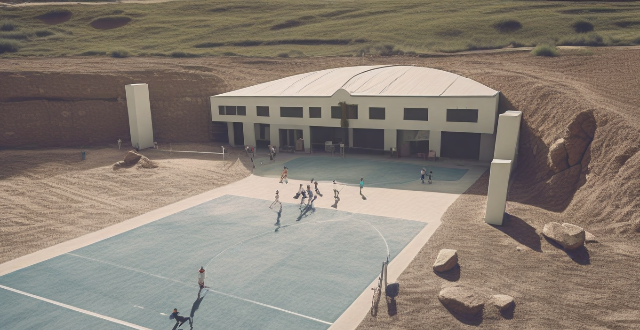Sports rehabilitation centers play a crucial role in helping athletes recover from injuries and return to their peak performance levels. The effectiveness of treatments at these centers depends on various factors, including the expertise of the staff, the facilities available, and the individual needs of each athlete. In this article, we will discuss the key aspects that contribute to the success of sports rehabilitation programs.

Effectiveness of Treatments at Sports Rehabilitation Centers
Sports rehabilitation centers play a crucial role in helping athletes recover from injuries and return to their peak performance levels. The effectiveness of treatments at these centers depends on various factors, including the expertise of the staff, the facilities available, and the individual needs of each athlete. In this article, we will discuss the key aspects that contribute to the success of sports rehabilitation programs.
Expertise of the Staff
The first factor that determines the effectiveness of treatments at sports rehabilitation centers is the expertise of the staff. The center should have a team of experienced professionals, including physical therapists, athletic trainers, and sports medicine physicians, who are knowledgeable about the latest techniques and technologies in sports rehabilitation. They should be able to diagnose injuries accurately, develop customized treatment plans, and monitor progress regularly.
Qualifications and Experience
- Physical therapists should have a degree in physical therapy and be licensed to practice in your state.
- Athletic trainers should have a bachelor's or master's degree in athletic training and be certified by a reputable organization such as the Board of Certification for Athletic Trainers (BOC).
- Sports medicine physicians should have a medical degree and specialize in sports medicine.
Continuing Education
- The staff should participate in ongoing education and training to stay up-to-date with the latest advancements in sports rehabilitation.
- They should attend conferences, workshops, and seminars to learn about new techniques and technologies.
Facilities and Equipment
The second factor that influences the effectiveness of treatments at sports rehabilitation centers is the availability of appropriate facilities and equipment. The center should have a well-equipped gymnasium, pool, and therapy room with advanced equipment for rehabilitation exercises and treatments.
Gymnasium
- The gymnasium should have a variety of exercise machines, free weights, and resistance bands for strength training.
- It should also have space for cardiovascular exercises such as running, cycling, and rowing.
Pool
- The pool should be heated and equipped with underwater treadmills, resistance paddles, and other aquatic therapy tools.
- It should be large enough to accommodate multiple athletes simultaneously.
Therapy Room
- The therapy room should have specialized equipment for manual therapy, such as tables, chairs, and stools.
- It should also have instruments for soft tissue mobilization, joint mobilization, and neuromuscular stimulation.
Individualized Treatment Plans
The third factor that affects the effectiveness of treatments at sports rehabilitation centers is the development of individualized treatment plans based on each athlete's specific needs. The plan should include goals, timelines, and milestones for recovery, as well as regular assessments to track progress.
Assessment and Diagnosis
- The staff should conduct a thorough assessment of the athlete's injury, including medical history, physical examination, and imaging tests if necessary.
- They should diagnose the injury accurately and identify any underlying conditions that may affect recovery.
Goals and Timelines
- The treatment plan should set realistic goals for recovery, such as reducing pain, improving range of motion, and increasing strength and endurance.
- It should also establish a timeline for achieving these goals, based on the severity of the injury and the athlete's overall health status.
Regular Assessments
- The staff should monitor the athlete's progress regularly, using objective measures such as range of motion tests, strength tests, and functional assessments.
- They should adjust the treatment plan as needed based on the results of these assessments.
Conclusion
In conclusion, the effectiveness of treatments at sports rehabilitation centers depends on several factors, including the expertise of the staff, the availability of appropriate facilities and equipment, and the development of individualized treatment plans. By choosing a reputable sports rehabilitation center with experienced professionals and state-of-the-art facilities, athletes can maximize their chances of recovering from injuries and returning to their sport successfully.